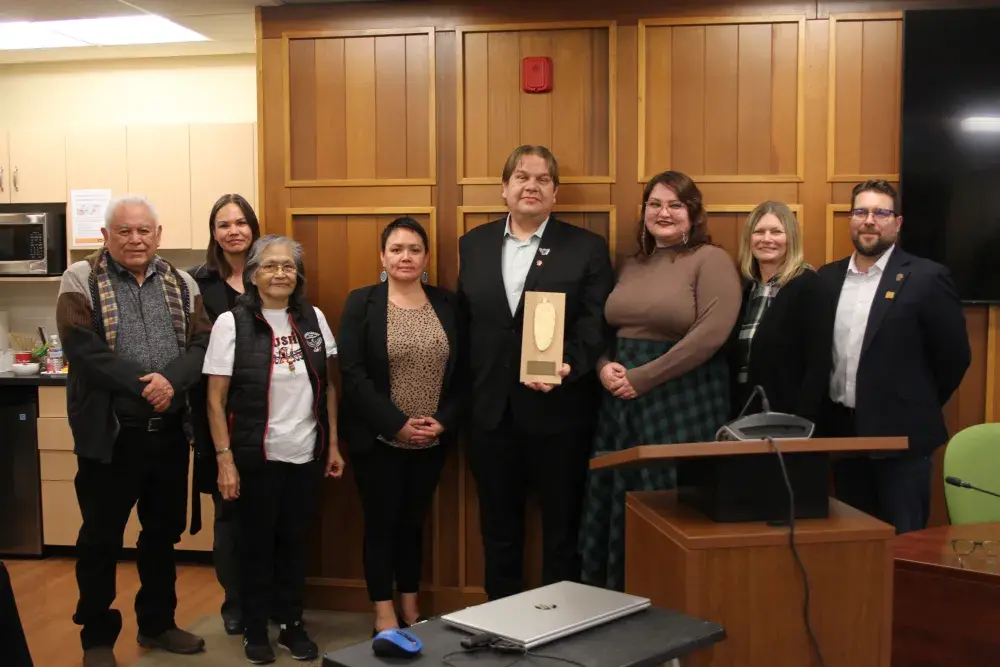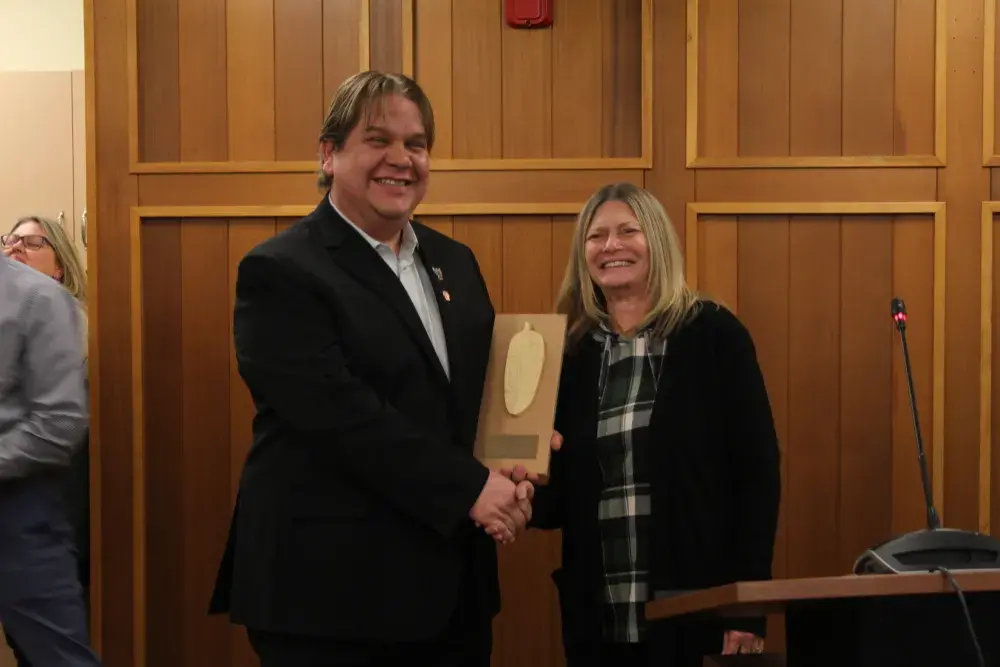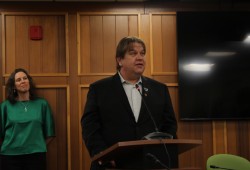The Uchucklesaht Tribe is celebrating 10 years of being a voting member on the ACRD, looking back on a decade marking a shift towards First Nations gaining a larger voice in regional governance.
The First Nation was recognized by the Alberni-Clayoquot Regional District on March 6, before a scheduled board meeting. The ACRD was the first regional district to make First Nations full voting members when the Huu-ay-aht and Yuułuʔiłʔatḥ joined April 1, 2012, followed by the Uchucklesaht on Feb. 1, 2014 and the Toquaht in 2016.
All of these First Nations are part of the Maa-nulth Final Agreement, a treaty implemented April 1, 2011 that also includes the Ka:'yu:'k't'h'/Che:k'tles7et'h' First Nations, which joined the Strathcona Regional District board in 2021. One of the very few modern-day treaties to reach full implementation, Maa-nulth brought $73.1 million in capital transfer payments to the five nations, and the agreement identifies 25,500 hectares of treaty settlement lands. Under Canadian law, Maa-nulth gives the five nations full authority over their respective territories, removing them from the stipulations of the Indian Act.
At the March 6 recognition Uchucklesaht Chief Councillor Wilfred Cootes spoke of the need to consider the interests of the whole region while sitting on the board. The ACRD covers a large area that includes the Alberni Valley, stretching west to the coast encompassing Bamfield and Barkley Sound in the south, as well as Tofino and Clayoquot Sound in the north.
“When you join this table you have two different hats,” said Cootes. “You have your own region that you talk about, but then you think about it from a 35,000-foot level; you talk about the good of the region.”
Wilfred Cootes was recently elected chief councillor in November after the retirement of Charlie Cootes, who represented the nation since the late 1960s. But Wilfred has long served as a councillor for Uchucklesaht, and sat on the ACRD board for nine years after the First Nation was made a voting member.
“It’s okay to have differences of opinion, it’s okay to have healthy dialogue, it’s okay to have healthy discourse, it’s okay not to see eye to eye,” reflected Wilfred on the past decade. “I had some of the most amazing times arguing with some past board members, we did it diplomatically.”
In a message sent to the ACRD, Mid Island-Pacific Rim MLA Josie Osborne noted that regional districts are meant to equally represent all communities in the areas that they encompass.
“They are a place where community representatives gather to share ideas, voice concerns and vote on matters that impact their community and the region,” she said. “It seems only logical that First Nation communities would be invited to the table, to be afforded the same representation as every other community in the region. Unfortunately, we know that historically First Nations have not been afforded the same representation, and many have been, and still are, being shut out of these important local conversations and decision-making processes.”
Regional districts operate under the Local Government Act, and this provincial legislation currently does not allow non-treaty First Nations to join as board members. But this could change.
“Let’s hope that one day we’ll be able to include all other ACRD nations at the table,” said board member Debbie Haggard, who is a Port Alberni city councillor. “That is a goal that we’re working towards right now. Every First Nation deserves a voice at our table.”
Wilfred Cootes noted that this could be helpful for the Tseshaht First Nation, which are subject to the Alberni Valley landfill being on the southern edge of their reserve.
“A perfect example is the landfill right now,” he said. “It sits in their backyard, and they don’t have a seat at the table, don’t have a voice.”
“I’m a big advocate for treaty, but treaty can’t be the only way to get your voice heard,” he added. “The ACRD is doing some good work trying to get those non-treaty nations having a voice at the table.”
Currently the Uchucklesaht’s representative on the ACRD board is Moriah Cootes, Wilfred’s daughter.



